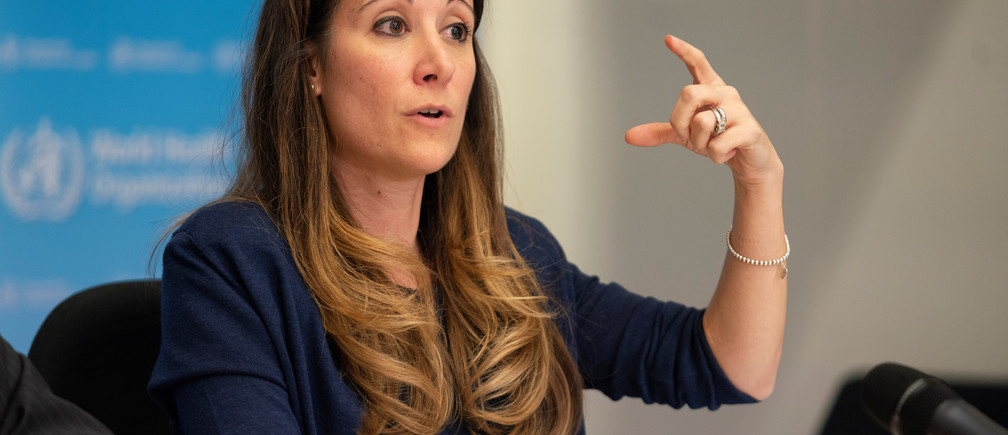Prepare for a 'new normal' as lockdown restrictions ease: Monday's COVID-19 WHO briefing

When and how can lockdowns be lifted? WHO Technical Lead Maria Van Kerkhove discussed on 13 April.
Image: Christopher Black / WHO VIA REUTERS
Stay up to date:
Global Health
- Lockdowns must be lifted strategically, and not all at once, said WHO officials at a briefing on 13 April 2020.
- Countries with lower numbers of cases can begin easing restrictions.
- Social distancing and handwashing need to continue longer term.
Half the world has been under some form of lockdown to slow the spread of COVID-19. While many are eager to see restrictions lifted, especially as numbers stabilize in some countries, we must remain patient and vigilant, said officials at the World Health Organization (WHO) briefing on Monday 13 April.
“It may be a little bit longer that you have to remain at home,” said Dr Maria Van Kerkhove, Technical Lead of the WHO Health Emergencies Programme.
Lockdowns must be lifted strategically, and not all at once, to prevent further disruptions, said Van Kerkhove.
“Not lifting all at once is very critical so that we can get people back to work, get these economies going back again as quickly as possible.”
Accept our marketing cookies to access this content.
These cookies are currently disabled in your browser.
Countries can begin easing restrictions in areas that show a lower incidence of cases. With a controlled, strategic approach, the system can divert resources where they are needed.
The WHO is developing new strategic advice for countries considering lifting restrictions. Full guidance will be published tomorrow, said Dr Tedros Adhanom Ghebreyesus, Director-General, but countries easing lockdowns should meet the following criteria:
1. The transmission is controlled.
2. Health system capacities are in place to detect, test, isolate and treat every COVID-19 case and trace every contact.
3. Outbreak risks are minimized in special settings like health facilities and nursing homes.
4. Preventive measures are in place in workplaces, schools and other places where it’s essential for people to go.
5. Importation risks can be managed.
6. Communities are fully educated, engaged and empowered to adjust to the “new norm”.
Countries seeing their numbers stabilize should not believe the worst is over. “Now is the time for vigilance,” said Michael J. Ryan, Chief Executive Director of the WHO Health Emergencies Programme.
What is the World Economic Forum doing about the coronavirus outbreak?
Measures such as physical distancing and handwashing will need to stay in place even after lockdowns are lifted. “We are going to have to change our behaviors for the foreseeable future, said Ryan.
Increased capacity at health systems will also need to be maintained once restrictions are eased. Hospitals must ensure that protective equipment is in place and intensive care beds are on standby. “As we come out of these lockdown situations," said Ryan, "we may see a jump back up of cases. And we don't want to lurch from lockdown to nothing."
“Now is the time to double down,” said Ryan. “Now is the time to be very, very careful.”
Don't miss any update on this topic
Create a free account and access your personalized content collection with our latest publications and analyses.
License and Republishing
World Economic Forum articles may be republished in accordance with the Creative Commons Attribution-NonCommercial-NoDerivatives 4.0 International Public License, and in accordance with our Terms of Use.
The views expressed in this article are those of the author alone and not the World Economic Forum.
Forum Stories newsletter
Bringing you weekly curated insights and analysis on the global issues that matter.
More on Health and Healthcare SystemsSee all
Shyam Bishen
June 20, 2025
Mamta Murthi and Sania Nishtar
June 19, 2025
Naoko Tochibayashi and Mizuho Ota
June 18, 2025
Gaurav Ghewade
June 17, 2025
Gareth Francis
June 12, 2025




